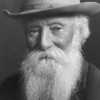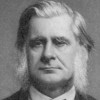The dividing line between those who want to think and therefore have to judge by themselves, and those who do not, strikes across all social and cultural or educational differences. In this respect, the total moral collapse of respectable society during the Hitler regime may teach us that under such circumstances those who cherish values and hold fast to moral norms and standards are not reliable: we now know that moral norms and standards can be changed overnight, and that all that then will be left is the mere habit of holding fast to something. Much more reliable will be the doubters and skeptics, not because skepticism is good or doubting wholesome, but because they are used to examine things and to make up their own minds. Best of all will be those who know only one thing for certain: that whatever else happens, as long as we live we shall have to live together with ourselves.
Hannah Arendt (1906-1975) German-American philosopher, political theorist
“Personal Responsibility Under Dictatorship” (1964)
(Source)
Quotations about:
skeptic
Note not all quotations have been tagged, so Search may find additional quotes on this topic.
O God, if there be a God, save my soul, if I have a soul!
(Other Authors and Sources)
Anonymous Soldier, Battle of Blenheim (31 Aug 1704)
Also given as "Oh, God, if there is one, save my soul, if I have one."
The original printed source for this quote appears to be in William King (1685-1763), Political and Literary Anecdotes of His Own Times (1761), who quotes William Wyndham (1688-1740) claiming it "the shortest prayer he had ever heard," given by a common soldier prior to the Battle of Blenheim.
Also attributed to:
- Robert Ingersoll (1833-1899), without citation, supposedly on his deathbed, sometimes with the final phrase "... from hell, if there be a hell!"
- Ernest Renan (1823-1892) as "The Agnostic's Prayer" or "Prayer of a Skeptic [Prière d'un sceptique]" ("Ô Seigneur, s'il y a un Seigneur; sauvez mon âme, si j'ai une âme.")
- Frederick the Great (1712-1786), in M. Goldsmith, Frederick the Great (1929), without citation.
- Voltaire (1694-1778), without citation.
True science and true religion are twin-sisters, and the separation of either from the other is sure to prove the death of both. Science prospers exactly in proportion as it is religious; and religion flourishes in exact proportion to the scientific depth and firmness of its basis. The great deeds of philosophers have been less the fruit of their intellect than of the direction of that intellect by an eminently religious tone of mind. Truth has yielded herself rather to heir patience, their love, their single-heartedness, and their self-denial, than to their logical acumen. And all the reformations in religion–all the steps by which the creeds you hold have been brought to that comparative purity and truth in which you justly glory–have been due essentially to the growth of the scientific spirit, to the ever-increasing confidence of the intellect in itself — and its incessantly repeated refusals to bow down blindly to what it had discovered to be mere idols, any more. It is above all things needful for you, working men, to note these truths. For with the limited time, and the limited means for study at your disposal, you run the risk of flying to one of two extremes–bigoted orthodoxy, or conceited scepticism.
T. H. Huxley (1825-1895) English biologist [Thomas Henry Huxley]
Lecture, “Science and Religion” (Dec 1858)
(Source)
Quoted in The Government School of Mines, The Builder (Jan 1859). Quoted in Herbert Spencer, Education: Intellectual, Moral, Physical, ch. 1 (1860)
Not that indeed I imitated the sceptics, who only doubt for the sake of doubting, and pretend to be always uncertain; for, on the contrary, my design was only to provide myself with good ground for assurance, and to reject the quicksand and mud in order to find the rock or clay.
[Non que j’imitasse pour cela les sceptiques, qui ne doutent que pour douter, et affectent d’être toujours irrésolus; car, au contraire, tout mon dessein ne tendoit qu’à m’assurer, et à rejeter la terre mouvante et le sable pour trouver le roc ou l’argile.]
René Descartes (1596-1650) French philosopher, mathematician
Discourse on Method [Discours de la méthode], Part 3 (1637) [tr. Haldane & Ross (1911)]
(Source)
(Source (French)). Alternate translations:
Not that I therein imitated the Scepticks, who doubt onely to the end they may doubt, and affect to be always unresolved: For on the contrary, all my designe tended onely to fix my self, and to avoid quick-mires and sands, that I might finde rock and clay.
[tr. Newcombe ed. (1649)]
Not that in this I imitated the sceptics who doubt only that they may doubt, and seek nothing beyond uncertainty itself; for, on the contrary, my design was singly to find ground of assurance, and cast aside the loose earth and sand, that I might reach the rock or the clay.
[tr. Veitch (1901)]
For all that, I did not imitate the sceptics who doubt only for doubting's sake, and pretend to be always undecided; on the contrary, my whole intention was to arrive at a certainty, and to dig away the drift and the sand until I reached the rock or the clay beneath.
[tr. Huxley (1870)]
In doing this I was not copying the sceptics, who doubt only for the sake of doubting and pretend to be always undecided; on the contrary, my whole aim was to reach certainty -- to cast aside the loose earth and sand so as to come upon rock or clay.
[tr. Cottingham, Stoothoff (1985)]
Have I ever heard a skeptic wax superior and contemptuous? Certainly. I’ve even sometimes heard, to my retrospective dismay, that unpleasant tone in my own voice. There are human imperfections on both sides of this issue. Even when it’s applied sensitively, scientific skepticism may come across as arrogant, dogmatic, heartless and dismissive of the feelings and deeply held beliefs of others. And, it must be said, some scientists and dedicated skeptics apply this tool as a blunt instrument, with little finesse. Sometimes it looks as if the skeptical conclusion came first, that contentions were dismissed before, not after, the evidence was examined. All of us cherish our beliefs. They are, to a degree, self-defining. When someone comes along who challenges our belief system as insufficiently well based — or who, like Socrates, merely asks embarrassing questions that we haven’t thought of, or demonstrates that we’ve swept key underlying assumptions under the rug — it becomes much more than a search for knowledge. It feels like a personal assault.
Carl Sagan (1934-1996) American scientist and writer
The Demon-Haunted World, ch. 17 (1995)
(Source)
Many orthodox people speak as though it were the business of sceptics to disprove received dogmas rather than of dogmatists to prove them. This is, of course, a mistake. If I were to suggest that between the Earth and Mars there is a china teapot revolving about the sun in an elliptical orbit, nobody would be able to disprove my assertion provided I were careful to add that the teapot is too small to be revealed even by our most powerful telescopes. But if I were to go on to say that, since my assertion cannot be disproved, it is intolerable presumption on the part of human reason to doubt it, I should rightly be thought to be talking nonsense.
Bertrand Russell (1872-1970) English mathematician and philosopher
“Is There a God?” (1952)
(Source)
Essay commissioned by Illustrated magazine in 1952, but never published there. First publication in Russell, Last Philosophical Testament, 1943-68 (1997) [ed. Slater/Köllner].
I believe this is the earliest (chronologically) reference by Russell to his teapot analogy.
The fact that a believer is happier than a sceptic is no more to the point than the fact that a drunken man is happier than a sober one. The happiness of credulity is a cheap and dangerous quality of happiness, and by no means a necessity of life.
George Bernard Shaw (1856-1950) British playwright and critic
Androcles and the Lion, Preface (1912)
(Source)
They are ill discoverers that think there is no land, when they can see nothing but sea.
Francis Bacon (1561-1626) English philosopher, scientist, author, statesman
De Augmentis Scientiarum [Advancement of Learning], Book 3, ch. 4 (1605)
(Source)
Alt trans: "[They] are indolent discoverers who seeing nothing beyond but sea and sky, absolutely deny there can be any land beyond them."
Another source notes it as Book 2, ch. 7.












